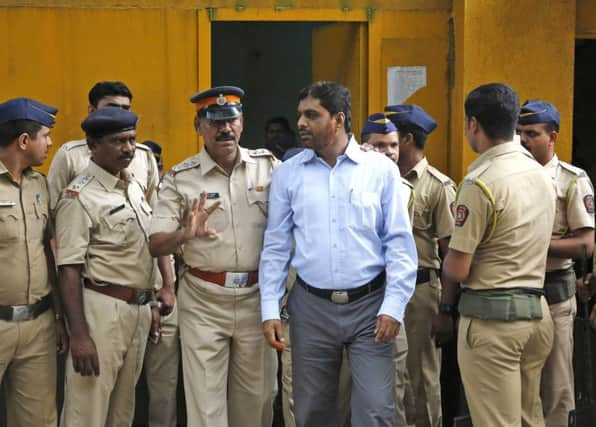India: 12 found guilty of Mumbai train bombings


The trial in India’s notoriously slow justice system lasted more than seven years. It concluded in August last year, but Judge Yatin D Shinde took one year to write the verdict.
He found 12 defendants guilty of murder and criminal conspiracy charges and acquitted one person for lack of evidence. Judge Shinde said he would announce the sentence on Monday after hearing arguments from the prosecutors and defence attorneys. They face the death penalty or life in prison.
Advertisement
Hide AdAdvertisement
Hide Ad“Justice has been done for the people of Mumbai. I will ask for the strictest punishment when I argue for their sentences,” public prosecutor Raja Thakre said.
Seven bombs exploded within ten minutes in the evening rush hour on trains in Mumbai, the financial and entertainment capital of India, on 11 July, 2006.
The bombs were packed into seven pressure cookers and put in bags.
The blasts took place in the areas of Matunga, Khar, Mahim, Jogeshwari, Borivali and Mira Road, with most on moving trains and two at stations. It appeared that the bombs were to have targeted first-class compartments, as commuters were returning home from the city’s financial district.
“I am happy that the investigation has been upheld,” said KP Raghuvanshi, the former head of the anti-terrorism squad, who investigated the bombings. “The court has appreciated the evidence we presented.”
More than 200 witnesses were examined during the trial, which concluded in August last year.
Prosecutors say the attack was planned by Pakistan’s intelligence agency ISI, and carried out by operatives of Pakistan-based militant group Lashkar-e-Taiba with help from the Students’ Islamic Movement of India, a banned Indian group.
Police name Azeem Cheema, the Pakistan-based leader of Lashkar-e-Taiba, as the prime conspirator, but he is still at large. The 12 convicted in the case were believed to belong to the Indian militant group.
Advertisement
Hide AdAdvertisement
Hide AdThe Lashkar-e-Tayyaba is a Pakistan-based Islamic militant group. Pakistan has denied the Indian claims.
After the 2006 blasts, critics accused the government of dragging its feet over Kashmir and not doing enough to stamp out terrorism and its support bases.
More recent efforts by the neighbours to revive a peace deal have been thwarted by persistent border tensions and controversy over whether to discuss Kashmir.
Mumbai has seen previous terror attacks – in November 2008 gunmen carry out a series of co-ordinated attacks across seven high-profile locations, including two luxury hotels, city’s main commuter train station, a hospital, a restaurant and a Jewish centre, killing 165 people. Mumbai’s suburban train system is one of the busiest in the world, carrying more than more million commuters a day.
Neighbouring countries have fought three wars since their independence from Britain in 1947 and have been engaged in a fitful peace process in recent years.